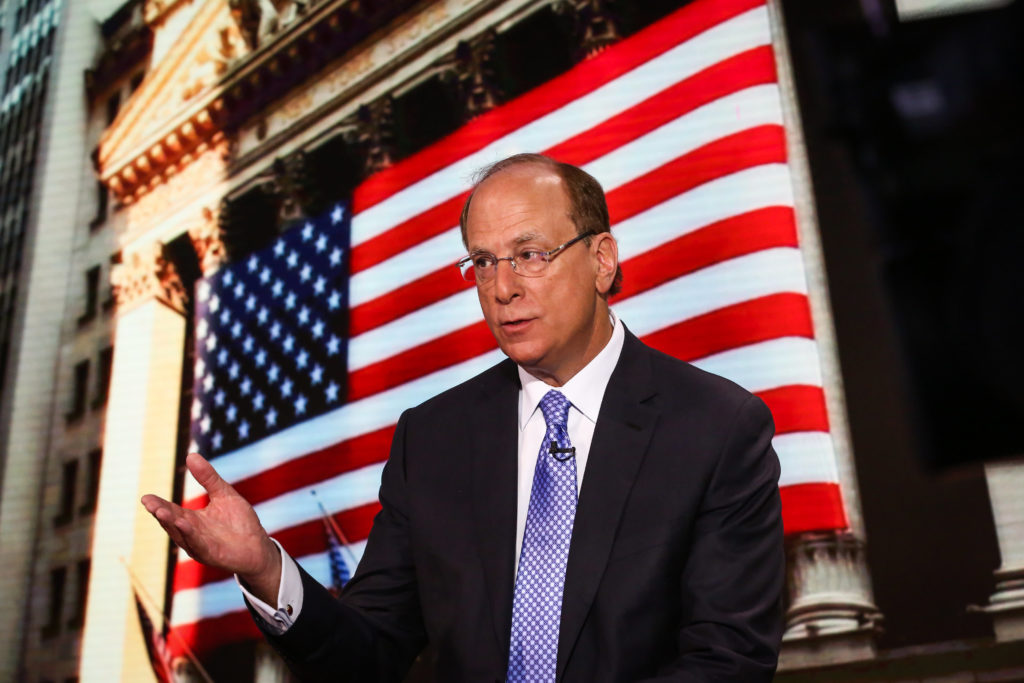LONDON — Larry Fink, chair and CEO of BlackRock, says the so-called energy transition toward greener power has to be radically rethought and blasted oil firms for selling out to private companies.

Speaking at the Green Horizon Summit chaired by CNBC’s Julianna Tatelbaum during the COP26 climate conference in Glasgow, Scotland, Fink praised public companies for increasing their reporting of emissions but criticized oil firms for selling parts of their businesses to private investors, and said it could create huge market arbitrage.
“We can’t just ask public companies to move forward without the rest of society. It’s going to create the biggest capital market arbitrage. We’re seeing that more hydrocarbons have been sold to private companies in the last few years than almost any time ever. That doesn’t change the world at all. It actually makes it, the world even worse, because it moves from public disclosed companies to opaque private enterprises. So, the mission is failing if that’s all you’re doing,” he stated.
Arbitrage refers to market inefficiencies that allow investors or companies to profit.
Some oil firms are selling their more polluting assets to private companies, creating more of a green narrative for shareholders. But those assets still exist, and are less transparent in private hands, Fink said. “That is not changing to a net-zero world. That’s window dressing, that’s greenwashing,” he stated.
One solution, Fink said, is to create new financial vehicles for the spin-off of oil assets, with an energy company then committing all of the proceeds of the sale to green technology. “We need to create these types of vehicles like we’ve done during [the] financial crisis with banks, we need to create new vehicles, new thought processes,” he said.
BlackRock, the world’s largest money manager, is “working with them, not against them,” in terms of its relationship with oil firms, Fink said. “The key for our hydrocarbon companies, they need to rapidly move towards a more decarbonized business model. But at the same time, they are the number one purveyor of energy, of gas and oil, in a society that still is totally dependent on that,” he acknowledged.
“We need to reimagine how we could rapidly deploy new capital into the greening of the world, but not the avoidance of hydrocarbons in the short run or we’re going to have $120, $140 oil, and that’s not a fair or just transition,” Fink added.
The developing world
Fink warned that emerging countries “will not come along because they can’t afford it,” in terms of moving toward green energy. “We need a fair and just transition. If we’re not getting a fair and just transition we’re going to create more polarization in the world, more political uncertainty,” he warned.
He said the World Bank and the International Monetary Fund would need to be reimagined to ensure enough money goes to developing countries to help them tackle climate change. “If we are serious about elevating the amount of capital that is going into the emerging world, right now it’s only about $150 billion, and all the estimates are that we are going to have to get to $1 trillion a year for the next 30 years to really move the whole world including the emerging world to a more sustainable platform,” he said.
“I’m urging the owners of those institutions, the equity owners, and that’s all the major countries of the world to focus on how do we reimagine these institutions,” he added.
BlackRock said it had raised $673 million for a climate-focused infrastructure fund for projects in emerging markets, per a Reuters report Tuesday. The Climate Finance Partnership has backing from the governments of Japan, France and Germany.
BlackRock had targeted $500 million of investment, so the fund was oversubscribed, Fink told the COP26 event. “We could raise a lot more and this is a great example of leveraging what public capital can do,” he said.





